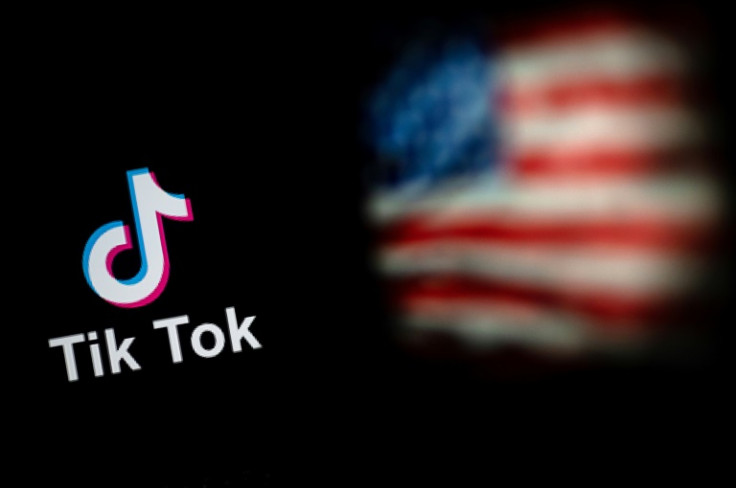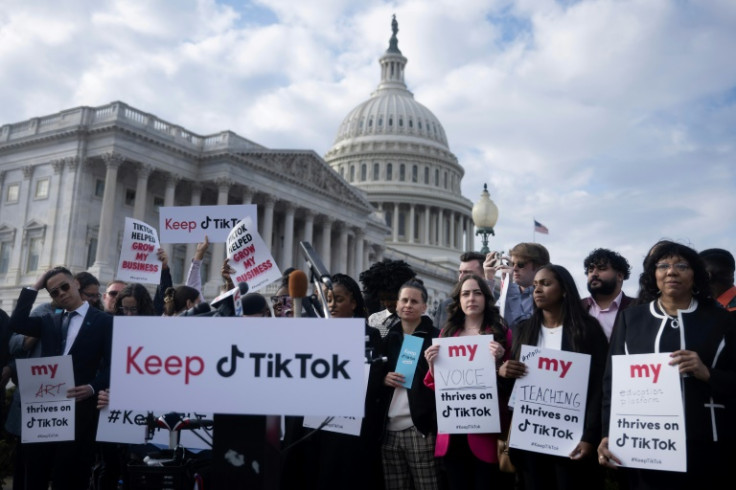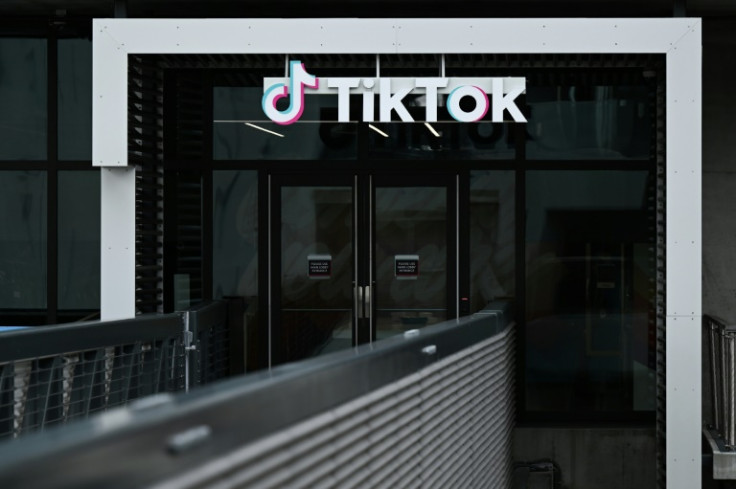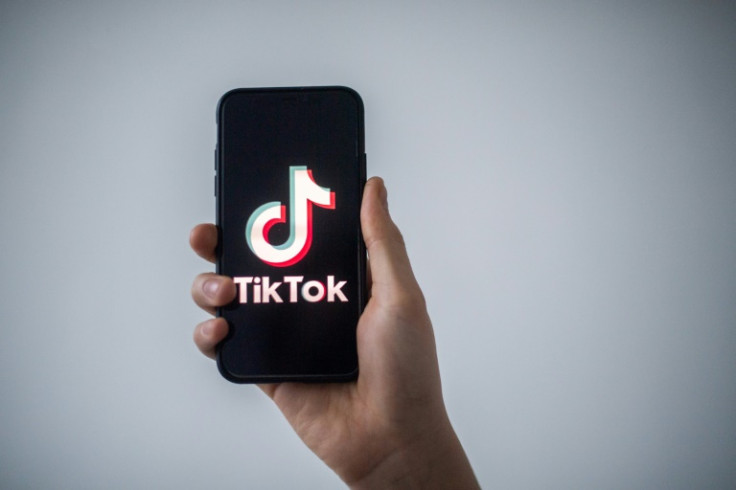US Ban On TikTok Won't Only Affect Influencers, It Could Impact The Economy Too

KEY POINTS
- There are currently 100 million people in the U.S. who are regularly using TikTok
- At least 65% of all TikTok users are creating online content full-time
- Several brands that promoted their products on Tiktok reported an increase in sales of more than 100%
In recent months, lawmakers in the United States have escalated efforts to restrict access to TikTok, a move first raised nearly two and a half years ago during the Trump administration.
Earlier in March, the U.S. House Foreign Affairs Committee approved legislation that gives President Joe Biden the power to impose a federal ban on the usage of TikTok nationwide. The measure, which comes amid national security concerns, could see the platform removed from app stores in the U.S. once signed into law.
ByteDance, TikTok's Chinese owner, is also facing pressure from the Committee on Foreign Investment in the United States (CFIUS), which reviews transactions that could affect national security. This could force ByteDance to sell its stake in TikTok or risk facing a ban.
With TikTok's future appearing bleak, we spoke with influencers and industry insiders to understand how a potential ban could affect not only the influencer market in the country but also the U.S. economy.
Why does the U.S. government want to ban TikTok?
Lawmakers and regulators, especially in the West, have expressed concerns that the Chinese government could use TikTok to collect sensitive user data, including the location information of its users.
In addition, lawmakers have also pointed to two pieces of legislation, particularly China's 2017 National Intelligence Law and the 2014 Counter-Espionage Law, as causes for concern. Article 7 of the first law states that "any organization or citizen shall support, assist and cooperate with the state intelligence work in accordance with the law."
The 2014 Counter-Espionage law states that "when the state security organ investigates and understands the situation of espionage and collects relevant evidence, the relevant organizations and individuals shall provide it truthfully and may not refuse."
Apart from national security concerns, the U.S. is also worried that China could use TikTok to spread misinformation. This is especially crucial as a growing share of U.S. adults are regularly getting news on TikTok. In fact, the number tripled in just two years, from 3% in 2020 to 10% in 2022, according to Pew Research.

How can a federal ban on TikTok affect influencers?
TikTok launched for iOS and Android systems in 2017 but only became available worldwide in 2018 after it merged with another Chinese social media service Musical.ly. Today, there are about 100 million people in the U.S. who regularly use TikTok. Among the 20 most popular full-time content creators, 65% are on TikTok.
TikTok influencers earn through a number of ways. The platform has a built-in monetization tool, like virtual "gifts", and a Creator Fund that pays users with at least 10,000 followers and 100,000 views. The platform has also begun trying out a new monthly subscription service for select live streamers.
There is no set amount for how much TikTok influencers make. Creator Fund payments are not just calculated based on views alone. Some earn between $0.02 and $0.03 for every thousand views on TikTok, while others between $9 to $38 a day on average.
With a possible ban looming, influencers are now considering shifting to other platforms to cover for the lost income. Pivoting successfully, however, is not easy, according to two influencers who spoke with the International Business Times.
"The thing that makes TikTok such a sought-after platform is how easy it is to make videos go viral and build a following. Much to the chagrin of Youtubers, who had to struggle to fight for every single follower, it's relatively easy to acquire above 1,000 followers [on TikTok]," R.M.S. Thornton, a poet and meme maker, said.
"If TikTok were to shut down, it would be rather difficult to build back this audience on other platforms in such a short amount of time."
Isaiah, who goes by Pryor Gaming on TikTok, echoed the same sentiments. With 2.3 million followers on the platform, he believes moving to another platform could be a "difficult process" because the types of content that go viral are also different.
"Monetization will also be a huge issue in the case of a federal ban on TikTok. Other platforms do not have a monetization system as developed as TikTok. YouTube's partner program also requires a high view threshold to join and earn as a shorts creator," he told IBTimes.

How can a federal ban on TikTok affect the U.S. economy?
There are approximately five million U.S. businesses that use TikTok to reach consumers, according to CEO Shou Zi Chew. Many have seen a significant jump in sales after engaging in the app.
American Eagle's Aerie brand, for instance, saw a 100% increase in Q2 sales after launching its #AerieREALPositivity campaign on the platform. Mattel, the toy company behind Barbie, reported a 116% increase in UNO sales between 2019 to 2020 after promoting its card game in the #unowhoyouare TikTok campaign.
Jaden Oh, Chief of Marketing at TRAFFV, said a ban could put the jobs of many people at risk which could affect economic output.
"The ban would put the jobs of many people in the tech sector at risk, which could lead to a decrease in consumer spending ... the ban would also reduce the amount of data available to businesses, leading to a lower level of economic activity overall," Oh told IBTimes.
A potential ban on the app could also see U.S. businesses losing the connection they've built with their audiences through TikTok. This could also significantly affect a company's ability to reach potential customers and close sales, said Ami Mandel of Keller Headhunters.
"A TikTok ban would significantly impact retailers and e-commerce businesses that use the platform for marketing and sales ... [it] could also take away from the brand a highly-engaged following, which leads to decreased customer engagement and abilities to drive sales," he explained.
However, Mandel said there are ways to cushion the impact of a potential ban apart from pivoting to other social media platforms.
"Businesses could consider exploring other marketing channels, diversifying their content creation efforts and investing in other forms of advertising, such as paid search or display advertising, to retain their reach and continue to attract consumers to their products," he added.
It is unclear when, or if, the ban will push through. Chew, who appeared before the House Committee on Energy and Commerce on Thursday, attempted to convince lawmakers that the app is safe. His statements, however, did not appear to sway Congress and assuage the lawmakers' fears of Chinese interference.

© Copyright IBTimes 2024. All rights reserved.





















